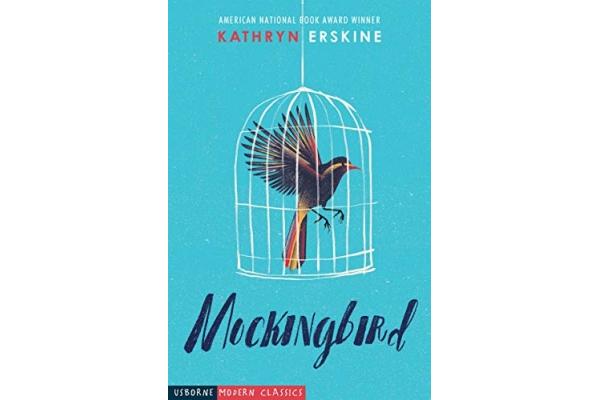

While we all appreciate condolences, there are also moments in grief when disappearing into our room as Caitlin does would also feel like the right reaction. And she puzzles at the teachers who never knew Devon at all. She questions the presence of the neighbor who yelled at Devon to get off his lawn. Caitlin wonders why there are so many relatives, many of whom hardly saw Devon when he was alive.

Her father prods her to socialize because the visitors want to help them deal with life after Devon. Next consider how Caitlin describes the memorial service. It’s so gray that turning on a lamp is too sharp and it hurts.” Anyone who has ever grieved will relate to that depth of pain. For example, listen to how Caitlin refers to death. One thing I love about Mockingbird is how Erskine takes me into Caitlin’s head, helping me relate to her on some levels. Perhaps because Erskine draws on both research and personal experience, Mockingbird is one those rare books which not only provides accurate information but also strikes a perfect emotional chord. The latter is a topic that also resonates with me because most teachers, no matter how safe their schools, have encountered violent students. Caitlin’s older brother Devon used to help her figure out the in-between stuff, except now Devon is dead as a result of school shootings.

Hence, my interest in reading Mockingbird by Kathyrn Erskine about ten-year-old Caitlin who sees everything as black and white because of her syndrome. In my seven years of working as a resource teacher, I have encountered several students with Aspergers Syndrome.


 0 kommentar(er)
0 kommentar(er)
